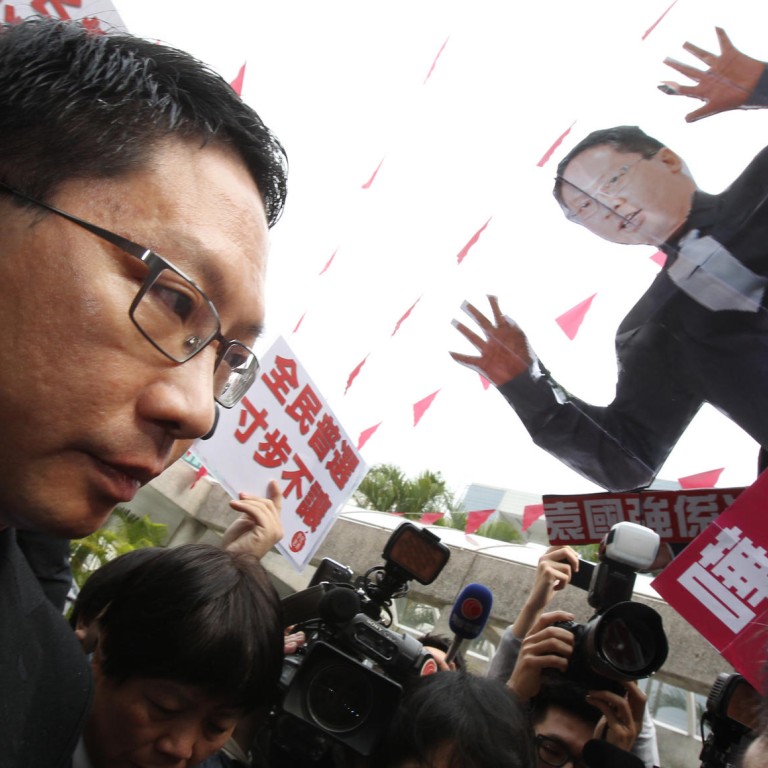
'Antagonism stands in way of political reform', warns Beijing-loyal heavyweight
A Beijing-loyal heavyweight has expressed pessimism over prospects for political reform, highlighting the "antagonistic" sentiments of pro-independence factions that added to the difficulty in reaching a consensus between pan-democrats and Beijing.
The person, speaking anonymously, said neither the pan-democrats nor Beijing had any incentive to make concessions over the arrangements for the 2017 chief executive election.
"The presence of the British-era flag, the pro-independence movement and the 'anti-locust' protests are doing immense damage to the prospect of electoral reform," the person said.
The person added that Civic Party lawmaker Ronny Tong Ka-wah's electoral plan - widely considered the most likely to be accepted - "probably cannot get through Beijing".
While Beijing had made a last-minute U-turn to accept the Democratic Party's reform proposal in 2010, the person said history was unlikely to repeat itself.
"[President] Xi Jinping has made himself clear that a tough stance will be adopted in national policies." For its part, the Democratic Party - still suffering a backlash from radicals for proposing the new district council functional constituency for the 2012 Legislative Council election - was unlikely to back down for a second time, said the person. "It may be a matter of the party's life and death if Democrats concede again regarding 2017."
Meanwhile, Secretary for Justice Rimsky Yuen Kwok-keung, who is on the constitutional reform task force, was briefly encircled by student protesters while entering the venue of a forum at City University yesterday.
During the two-hour forum, Yuen was questioned by students on whether public nomination had already been excluded by the authorities as a possible means to nominate the chief executive candidates and if such a method violated the Basic Law.
Yuen did not give direct replies, saying the reforms were still under consultation and opinions from the public were welcome.
He also declined to comment on remarks by Peking University law school professor Wang Lei that any notion of the public nominating chief executive candidates should be ruled out.
